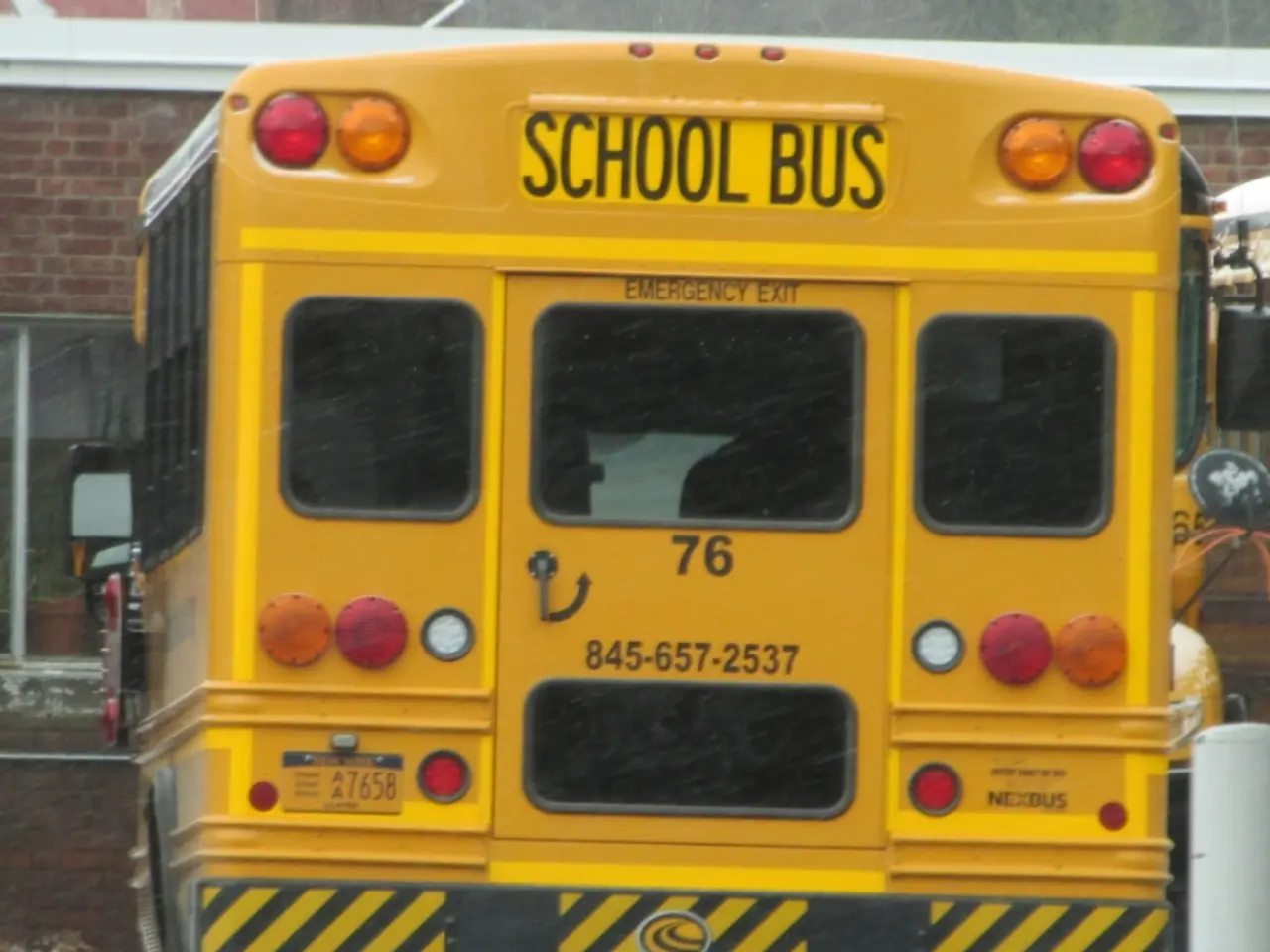Proposed school year extension debated by Kazakhstan's minister
Kazakhstan's School Year: A Look at the Current Scenario
Kazakhstan, known for its lengthy holidays, is currently in the midst of a debate about extending the school year. According to experts, the Central Asian nation boasts some of the longest holidays in the world [1]. However, as of the 2025-2026 academic year, there has been no indication of an extension of the school year until June 1 [2].
The Minister of Education, Gani Beysembayev, has expressed concerns about infrastructure development issues within the educational organization, stating that these are a priority before revisiting the question of extending the school year [2].
Despite the ongoing discussions, no specific year has been mentioned for revisiting the question. The minister has not ruled out the possibility, but has also expressed concerns about the heat in classrooms during the extended school year, citing a past incident in East Kazakhstan [3].
While the focus remains on resolving infrastructure issues, Kazakhstan is making significant strides in digitalizing its education sector. The country is planning to provide high-speed internet access to all schools and introduce artificial intelligence (AI) into the curriculum [3]. This initiative forms part of a broader effort to enhance digital literacy and skills among students, with the first stage covering grades 1-4 and the second stage aimed at grades 1-12 [3]. TUMO creative technology centres are also being established in major cities to develop digital competencies among young people [3].
However, the debate about extending the school year is not just about incorporating technology. Users on various platforms have expressed dissatisfaction with the current state of education, citing overloading of children, insufficient knowledge in schools, the need for paid additional courses during holidays, and teachers' focus on submitting reports instead of teaching [4].
Some experts and schools have proposed extending the school year until the end of June, with the argument that adding extra weeks could help reduce the daily workload for students [5]. On the other hand, users like Alena have expressed concern about the lack of cooling systems in schools, overcrowding, and past incidents of children fainting in class during extreme heat [6].
The discussion about extending the school year in Kazakh schools has been ongoing since 2022, with user Eternal Country questioning the implementation of a 12-year education system and the possibility of sending children to school at the age of 6 [7]. User Alejandro has countered this by pointing out that in China, summer holidays are in July and August, and winter holidays are in January and February [8].
User Aleksei has questioned why Kazakhstan has long holidays, while user Elena has argued against extending the school year, stating that it is already long enough and that infrastructure has no relevance to the duration of education [7].
As the debate continues, education officials are expected to weigh the pros and cons of extending the school year, potentially justifying their decision by citing the introduction of AI, as predicted by user SV [5]. The final decision, however, remains to be seen.
[1] School Year Schedule for 2025/2026 Released [2] Minister Gani Beysembayev on Extending the School Year [3] Kazakhstan's Digital Education Initiatives [4] Users' Concerns about the Current State of Education [5] Proposals to Extend the School Year until the End of June [6] Concerns about Extending the School Year until the End of June [7] User Discussions about Extending the School Year [8] User Alejandro on Kazakhstan and China's School Holidays
Politics and general news surrounding Kazakhstan's school year indicate a ongoing debate about extending the school year, with concerns raised by Minister Gani Beysembayev about infrastructure development issues within the educational system. The proposed extension until June 1 for the 2025-2026 academic year has not been confirmed, as focus remains on addressing digital literacy, digital infrastructure, and concerns about overcrowding, heat, and daily workload for students.






